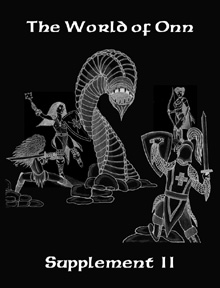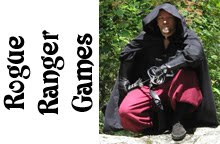Where D&D is concerned, some people consider it an 'evolution' of RPGs to have a 'singular' or 'unified' mechanic that everything can be formulized down into. The 3.5e and 4e games took this concept (which in truth has been around for a long time in other game systems) and ran like the wind with it. One of the side effects (or possibly the driving forces) behind this is the codification of skills in a class and level-based game system. Is there a reason why a character gets better at weapon smithing if he spends 3 months earning a few levels and is in a dungeon a majority of the time? How does he learn about smithing and practice it while he's down there? Other skills are more appropriate to everyday adventuring, like searching (and knowing where to search) and sneaking. Adventurers practice these skills every day of their lives.
The other side of the coin is when do you make a character roll a skill check and how often is it important? I embrace the randomness of the dice at every opportunity in my own games. But, that's where they become tools for creativity and not enslavers to the rules. Actual skill checks are made when I deem it important to know if a character can fail at such a task and if said task has reprecussions that could have a major effect in the game. Case in point: a 1st level Ranger I would have roll a skill check when encountering tracks to determine if he can tell the aproximate age, number of creatures and type of tracks. Does he know the difference between a giant and an ogre? The same Ranger at 9th level I would simply give the character the 'simple' information, but make a check for anything more exotic, such as if any appeared to be weighed down (with treasure or captives) or if any appear wounded or decrepit (by the way one particular set of tracks compared to others of the same type).
Player knowledge and actions play an important role at my table as well, which is why I frown on systems that use their unified mechanic where role-playing can be an important part of the game, such as when gathering information or dealing with an important NPC. Now, not every player has incredible social skills or the intimate knowledge of the campaign world's peoples, but if a player makes an honest attempt and uses whatever knowledge the party has gained through its adventuring then he should succeed. If a 'skill check' is needed for some reason for any type of PC to NPC interaction, the Referee should roll a check to the NPCs reactions and apply the speaking character's Charisma adjustment to the roll, along with a bonus of his choosing that reflects how much the player is using the knowledge the party has gained that might be relevant to the NPC. For this, I love players that take notes. Sometimes I give out alot of information. Usually most of it isn't relevant at the immediate moment, but down the road the tidbits become useful. When a player takes the time to commit the information to memory via notes and then uses them later in the campaign, I know they are enjoying the campaign because they are interested in what's going on (some people don't ever need to take notes and can quote something you said 6 months ago, these types of players are just as good since they are 'living notebooks'). In these cases, I treat all hostile results as indifference, unless the player is making some huge blunders when interacting with an NPC that simply cannot be overlooked (and this happens in real life as well on occasion, so you can use it to generate more adventure opportunities so the adventurers can 'save face' with the NPC group in question).
The players' knowledge should never be confused with their characters' knowledge, but they should be allowed to play the part of their characters when given the opportunity. Telling a player that he cannot do something because his 'skill level' isn't high enough flies in the face of the old school notion that characters can attempt do anything, even if they don't have a good chance for a favorable outcome.





2 comments:
There are times when the interaction between a PC and NPC does need a dice roll...For example, my elf wants to question someone and I don't know the local etiquette. The local etiquette might be that you invite the person over for dinner and offer them a small silver figurine. A person's status is based on how large a collection of figurines he has. But my elf just started asking questions and wondering if a light spell focused through a lens would make a good spotlight and hoping the dwarf cleric didn't mind playing with a rubber hose for effect...
A gross breach of etiquette. Granted, this is an extreme, but social interaction is more than just asking and answering. Also, I've gamed with DM/GMs who have the acting/social skills of a slug, and trying to really RP such an event is painful for both parties, thus a dice roll might be better.
IN ALL CASES, however, I much prefer roleplaying out an encounter and only consider dice a last resort.
Here's where it boils down to how a Referee runs his games. If just such an intricate situation, the players should be made aware that there is more involved in the local's interactions than simply a 'Hello and Handshake'. Maybe the first couple of times everything is detailed out, and as more interactions go by the proper actions should be assumed and thereafter only noted if something is missing (maybe the player cannot afford a silver statuette or whatever geegaw is customary to provide). Even still, great blunders do happen all the time in the real world so it would not be so much to assume they can happen in a fantasy game as well on occasion.
We've all had Refs/GMs/DMs/Players who are socially inexperienced or have a personality that grants them less than average social interaction. As I said, if a player has the proper information and uses it, I don't care if (s)he comes off as bad a role-player as Megan Fox and Nicholas Cage rolled into one as actors, using the tools the Referee has given out should always net some degree of success. No dice should ever determine if a player fails or succeeds at a purely role-playing aspect of his character (and most universal mechanic games are set up as pass/fail checks). Using the Monster Reactions still doesn't determine this, but merely the degree of the success. You can still provide all the information and get all of the customary incantracies correct, but maybe the NPC is having a bad day (his horse got run over by a 'Mek maybe). No matter what you do, nothing is ever 100% perfect or correct, so as long as there is effort, there should be some type of success.
Another way of looking at the 'rough hewn' interactivity of a new or less-skilled role-players is that with practice (as with most things) the player/Referee will improve and the people at that table will help them (assuming they want to become better and more interactive). This type of fun with your friends will last their lifetime as well and have an effect on how they interact in every relationship and friendship they ever have. That's pretty powerful stuff for a mere game when you think about it.
Post a Comment